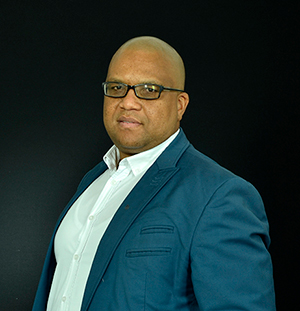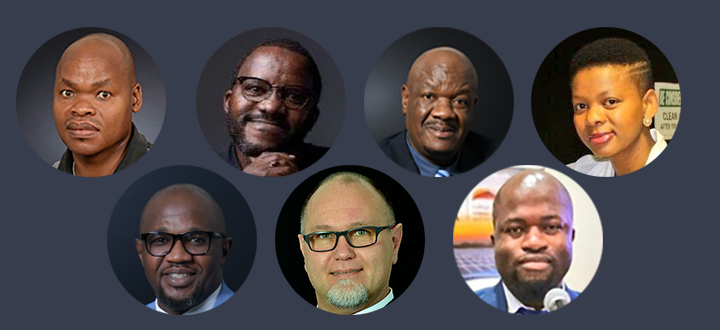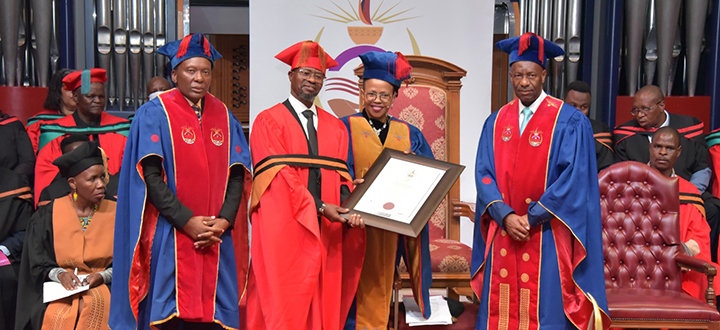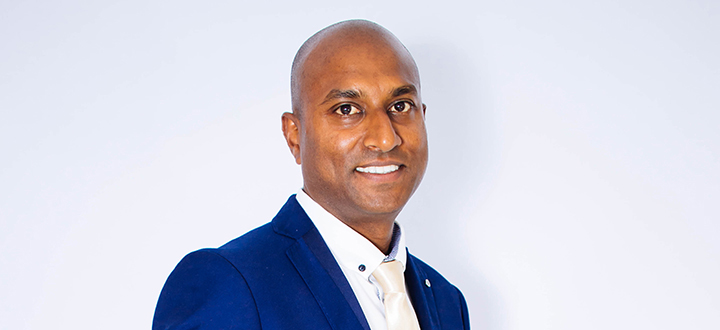News & Media
Lingani, a true believer in the concept of education

Mr Xola Lingani, Chief Audit Executive, Department of Internal Audit
Lingani describes himself as a true believer in the concept of education. He encourages Unisa to accept as many students as possible and produce more quality graduates. Referring to the latest unemployment figures published by the Department of Statistics South Africa (Stats SA), he believes that as a country, we do not have unemployment problems. "We have governance, ethics and education problems," he said.
According to Lingani, good governance has to do with constant reflection and assessment of decisions taken. He said if the decisions do not yield positive results, then the necessary adjustments must be made. Regarding unemployment and education, he believes that more people who are educated are employed, and therefore he encourages young people to get educated.
"In order to find the right solutions to our problems as a country, we need to analyse and diagnose the problems properly. My deepest concern is the progress of our country and if we are making the right decisions," explained Lingani.
The news team asked Lingani a few questions:
Tell us about yourself and your career path
I started as an Intern at the Department of Public Works, then later joined Ernst and Young. I then moved to African Bank and the Auditor General as an Audit Manager, and became a Senior Manager before moving to Deloitte. After working for Deloitte for three years, I joined Unisa.
It has been a journey of always improving myself, especially educationally and with experience. I have been able to get exposure and build networks.
What is your educational background?
I did my National Diploma and BTech in Internal Auditing at Tshwane University of Technology (TUT). I later did an MBA at the same institution.
Because this industry is regulated, I did professional qualifications – Certified Internal Auditor (CIA) with the Institute of Internal Auditors and Certified Information Systems Auditor (CISA) with the Information Systems Audit and Control Association (ISACA).
What is the role of the Department of Internal Audit at Unisa?
The role is defined by the institution itself and the Department of Higher Education and Training (DHET) also specifies what an audit is supposed to do.
We are assurance providers and internal consultants for the organisation. The primary role is risk management and to assist business and management to improve its control measures. We also play a role in investigations.
What does your job entail?
My role is to lead the team and ensure that they have all the tools they need to run the internal audit mandate. Maintaining good relationships with management and other key stakeholders is also important.
To keep my ears on the ground, I also do road shows to visit other regions. We invite management, staff and students, as they are our most important stakeholders. We need to remember that everyone’s job at the university is linked to the students’ benefit and we exist because of them.
How do you assist the university to achieve its objectives?
All our annual plans are risk-based, which means we look at the priorities of the business and assess the risks that could hinder the organisation to achieve them. After assessing the risks, we report back to management, showing actual controls and mitigations that the university should have. We then check which mitigations are working and which are not; and advise on what needs to be done to improve.
What are your short-term and long-term goals for the department?
Short-term goals:
- To improve our knowledge management.
- To make sure that we have a risk-based audit plan.
- To decide on the operating model, methodology and reporting technique.
- To improve our communication with and eminence in the business.
Long-term goals:
- We need to sustain integrity, trust and objectivity.
- Deterring, detecting and investigating forward. Looking at our short-term goals helps us achieve those.
- A short-to-medium term goal is that we need to do a better job of positioning internal audit as a strategic adviser and demonstrate leadership in business partnering.
- Supporting management in defining the required change activities.
What qualities do you need as a leader to achieve your goals?
Most leaders find it difficult to admit when they do not know something. We need to understand that as leaders, we are good co-ordinators, but we do not know it all.
A leader also needs to admit when they are wrong, listen to people’s challenges, be brave and make the right decisions. You should not just give instructions and disappear; you need to monitor results and lead by example.
What major changes have you seen in your field of work and how do you embrace them?
The major change is technology. It does not mean it is there to replace people, it actually helps us do more, of a better quality. Yes, technology can be manipulated, but it is easier to manipulate people than technology.
How would you advise Unisa to maintain a clean audit?
Getting a clean audit starts with leadership, because solutions start at the top. Leaders should not tolerate unnecessary deviations; they should make policies and procedures clear. It is important for leaders to admit to mistakes and correct them. There should be low tolerance of unethical behaviour.
Everyone is a leader in their own right and we all have a role to play.
Unisa is an African university shaping futures in the service of humanity. How do you plan on further contributing to this service?
We need to stay relevant and have a close relationship with our clients, which would allow us to be closer to their priorities. In that way, they would find it easy to share their challenges with us, and we would then respond quicker and become better aligned.
If you had to get away from serious office matters, what would you be doing?
I play a lot of video games and PlayStation. I am always on the Internet, on Netflix or watching documentaries. Even during my family time, we watch documentaries.
In conclusion, Lingani emphasised that a good curriculum vitae and qualifications are not enough; having a good industry reputation is very important.
* By Nancy Legodi, Acting Journalist: Publications, Department of Institutional Advancement
Publish date: 2019-10-22 00:00:00.0

 Young Unisa doctoral graduate joins elite Lindau Nobel Laureate group
Young Unisa doctoral graduate joins elite Lindau Nobel Laureate group
 Education MEC addresses Unisa autism seminar
Education MEC addresses Unisa autism seminar
 Seven Unisans nominated for the NSTF-South32 Awards 2023/2024
Seven Unisans nominated for the NSTF-South32 Awards 2023/2024
 Unisa awards posthumous honorary doctorate to literary maven, OK Matsepe
Unisa awards posthumous honorary doctorate to literary maven, OK Matsepe
 From humble beginnings to academic leadership
From humble beginnings to academic leadership